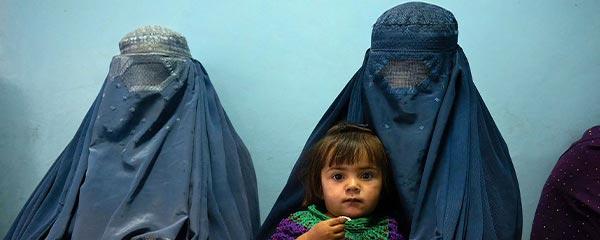Story Highlights
- More than two in three say economic conditions getting worse
- Worst time to find a job since 2008
WASHINGTON, D.C. -- Afghans' grim outlook on their economy illustrates that the Taliban are not the only threat to the country's stability after NATO's withdrawal. As Afghanistan's already stalled economy slowed even more in 2014, the percentage of Afghans who saw economic conditions getting better sank to a record-low 6%.

The uncertainty surrounding the security transition and the elections stalemate in 2014 have certainly drained Afghans' positivity about their economy. But even more problematic for a country whose economic growth has been largely reliant on international aid and spending, the situation has also spooked investors. After averaging real GDP growth of about 9% each year from 2003 to 2012, according to the World Bank, Afghanistan's growth tumbled sharply to 3.7% in 2013 and slumped to a projected 1.5% in 2014.
Repairing investor confidence will be key to sustainable growth in Afghanistan in 2015 and beyond, but so will creating private-sector jobs. With growth slowing in every sector of Afghanistan's economy, from services and industries to agriculture, there are fewer jobs available for Afghans who were already grappling with high unemployment. In fact, from Afghans' perspective, the job market has never been worse in the past seven years than it is now. Fewer than one in five (19%) Afghans say it is a good time to find a job where they live.

While the jobs outlook has generally been getting worse across Afghanistan since 2012, those living in the Central region, which includes the country's capital, Kabul, and in the East are the most likely to be discouraged. Only 13% of Afghans living in these two regions say it is a good time to find a job. Afghans are more positive in all other regions, particularly the South, but the percentage saying it is a good time to find a job is still lower in those regions than even a few years ago.

Implications
With the U.S. and NATO combat mission ending only a few weeks ago, Afghans clearly have more questions than answers about what the future holds. Afghans are now the most discouraged they have been since 2008 about the economy and jobs; more are ; and the plurality think they will be after the troops leave and that the .
This climate of uncertainty has fostered a crisis of hope that may prove as big an enemy to sustainable development and growth as any security threat. Afghanistan's best chances of allaying foreign investor fears and stimulating the private sector may still lie with the leadership of new President Ashraf Ghani, but only if he can make progress on the "triangle of stability" -- economy, security and human resources -- that he outlined in his inaugural speech.
Survey Methods
Results are based on face-to-face interviews with 1,000 adults, aged 15 and older, conducted from Aug. 18-Sept. 12, 2014, in Afghanistan. For results based on the total sample of national adults, the margin of sampling error is ┬▒3.6 percentage points at the 95% confidence level. All reported margins of sampling error include computed design effects for weighting.
For more complete methodology and specific survey dates, please review . Learn more about how the works.

